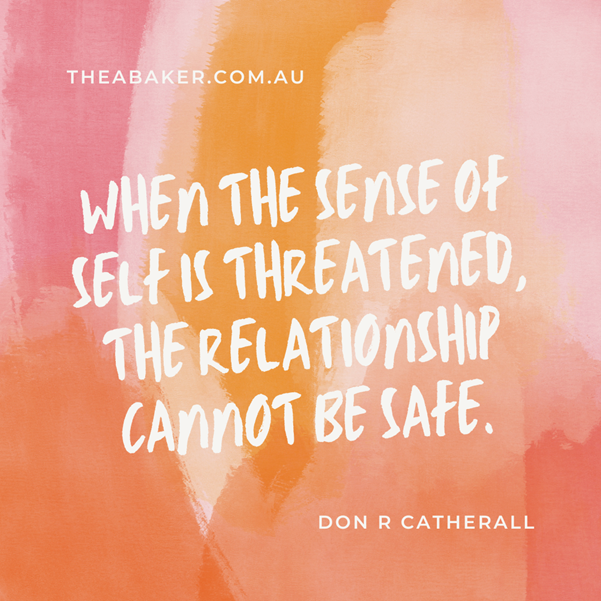Psychological safety
Psychological safety
This week, as I write this blog, I’m full of rage.
For those of you who have heard me talk about the difference between anger and rage, you’ll know that I’m quite pedantic about being able to identify which one is which, so you can reliably trust that I’m not experiencing some mild version of reactive anger or frustration.
It’s been quite an intense week in the practice with a higher-than-average number of clients presenting with heightened distress and (not unusually) I saw (or more accurately, I heard) a common thread emerging – a lack of psychological safety when interacting with healthcare professionals (such as GP’s, and specialists including gynaecologists, cardiologists, and neurologists). I have spoken to numerous women this week who have been treated appallingly by medical professionals – from being disbelieved about their symptoms, being told that lots of other people also feel the way and being denied a Mental Health Care Plan, having their experiences and / or pain minimised or dismissed, having their explicit request to stop an invasive procedure ignored (despite having agreed in advance that this would be honoured as part of a trauma/safety plan), through to when visibly upset instead of being cared for compassionately being told that they weren’t being forced to stay. I have quite literally cried with clients this week over this sort of medical gaslighting. In the past I have supported complaints to the Health Complaints Commissioner and AHPRA (Australian Health Practitioner Regulation Agency).
Coincidentally, this morning I heard on ABC Weekend Breakfast that this very week Parliament House in Canberra will be hosting the Women’s Health Summit (apparently this the third such summit but I can only find a recently published summary of outcomes related to the one held in 2021) where the focus will be around key themes:
- Improving access, care and health outcomes for women
- Empowerment
- Ensuring our health system is safe for all women
- Translating research into policies and practice
And whilst my blood was already boiling after hearing these horror stories from clients this week, this set of themes really tipped me over the edge. Why on earth in 2024 in Australia are we having to have summit sessions to ensure our health system is SAFE FOR WOMEN? Except of course we do because these spaces have a long history of being researched about men, for men, delivered by men. (For more on this topic read: Invisible Women by Caroline Criado Perez and Pain and Prejudice by Gabrielle Jackson) Yet sadly, even where shifts have happened – where women’s data is included in research and even where women are the medical practitioners delivering the care – too often the (western) healthcare model remains psychologically unsafe for women who bravely and vulnerably continue to present for help.

What is psychological safety?
Psychological safety speaks to the ability to be safe with oneself – to be able to recognise and rely on our internal ability to keep ourselves safe (either from maladaptive impulses attached to our internal protectors (or ‘Firefighters’ in IFS terms – see last week’s blog HERE), as well as discerning external threats to our safety and being able to take appropriate action. Psychological safety encourages, allows, and makes space for:
- Self-protection
- Attention and focus
- Self-knowledge
- Self-efficacy
- Self-esteem
- Self-empowerment
- Self-control
- Self-discipline
That’s a lot of ‘self’ orientated outcomes. The problem with traumatic experiences – in particular those in childhood / as a result of early attachment trauma – significantly impacts the development of a clear and integrated sense of self. Adverse life experiences negatively impact our ability to self-protect and can cause us to struggle with healthy boundaries with others. Self-efficacy is the basic sense of believing that we have the ability to relate to world on our own terms, without abusing power or being abused by it. Psychological safety is foundational for trust in any setting, but especially in healthcare because in these spaces the power imbalance is so significantly held by the medical practitioner.
A psychologically safe environment allows us to believe that we can ask questions (we have a right to understand our care, our diagnoses, our medical information/test results), voice concerns, share ideas (‘Dr Google’, or advice / suggestions from friends) and experience our feelings in an embodied way (we should be able to cry or show frustration in a medical setting without fear of it affecting how we are treated, perceived or cared for). We also need to have faith that if we share our experiences of past trauma that our healthcare providers are able to not only safely hold a space for that but importantly understand how that impacts not only our physical presentation and ability to communicate our needs effectively, understand the possible co-morbid relationship to other conditions/diseases, and appreciate the additional burdens that trauma forces us to carry. We should have confidence that our medical caregivers are trauma-informed in their care, however in my experience (personal and professional) we appear to have a long way to go.
If you’d like to explore your mental health in a trauma-informed and psychologically safe space, please get in touch with us: www.theabaker.com.au / hello@theabaker.com.au / 03 9077 8194.
